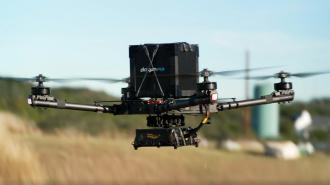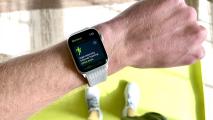Canadian drone manufacturer Draganfly is donating search-and-rescue and medical drones to a Ukrainian nonprofit to support the country in the midst of the Russian invasion.
“It’s so impactful to us as a company and to our people,” CEO Cameron Chell told CBC News. “I mean, it’s almost hard to talk about ‘cause you know it’s going to work right away … people’s lives are going to be affected right away.”
Hundreds more drones will be supplied at a discount to help run emergency relief and search-and-rescue missions while the country’s infrastructure and supply chains are under attack.
The challenge: Since invading Ukraine on February 24, Russia has conducted at least 78 attacks that have hit the nation’s healthcare system, including hospitals, ambulances, and medical supply stores, according to the World Health Organization.
“We have never seen globally … this rate of attacks on healthcare,” Michael Ryan, WHO’s emergencies director, told reporters on March 16. “This crisis is reaching a point where the health system in Ukraine is teetering on the brink.”
“There is a high risk that they will actually die because of the lack of therapy, if they don’t die under the shelling.”
Dmytro Sherembei
While the attacks themselves have led to an estimated 72 deaths and 42 injuries, the number of people impacted indirectly will be far greater, as many Ukrainians in need of medical care can no longer safely receive it.
“If they don’t get the medicines, there is a high risk that they will actually die because of the lack of therapy, if they don’t die under the shelling,” Dmytro Sherembei, founder of 100% Life, an organization delivering medical supplies to Ukrainians with HIV, told the New York Times.
What’s new? Draganfly is now donating one medical response drone and two search-and-rescue drones to Revived Soldiers Ukraine (RSU), a nonprofit helping wounded civilians and soldiers in Ukraine.
RSU is also purchasing up to 200 of the drones at a highly discounted rate, Chell told CBC News. The first of the drones are expected to arrive in Ukraine before the second week of April.
The drones can transport blood, insulin, and other supplies in their temperature-controlled payload boxes.
How they work: Draganfly’s search-and-rescue drones are equipped with AI sensors that could help RSU find people in dangerous situations in Ukraine.
“Our cameras can actually read vital signs,” said Chell. “So our drones can determine the survivors on the ground’s heart rate, blood pressure, oxygen levels, respiratory rates, temperatures, are they alive or [are] they conscious?”
Its medical drones, meanwhile, are equipped with temperature-controlled payload boxes that can be used to transport up to 35 pounds of blood, insulin, vaccines, and other supplies. They can fly for 40 minutes on a single charge.
“[Russians] wouldn’t let civilians come out of [Mariupol] and a lot of civilians got trapped in the basement of the buildings and the hospital’s basements,” RSU President Iryna Discipio told CBC News. “So we would like to see if we can use those drones to deliver much needed medical aid to those locations.”
The big picture: RSU’s newly acquired medical drones wouldn’t be much use without supplies to distribute, but thankfully, nonprofits, governments, hospital systems, and pharma companies have all stepped up to donate medical supplies to Ukraine over the past month.
One of those groups, California-based Direct Relief, teamed up with shipping giant FedEx to send 76 tons of medical supplies — including medications for diabetes, asthma, and cancer — to Poland for distribution to Ukrainian residents and refugees on March 26.
“Don’t wait for weeks and months, because we need the support right now.”
Oleksii Iaremenko
Oleksii Iaremenko, Ukraine’s deputy health minister, was in Poland to receive that shipment the next day. He told Reuters that the nation is grateful for the medical supplies it’s received so far, but is still in desperate need of more.
“For the last week, what we see [is] that the level of humanitarian support is a little bit down … what we are asking, if you can support, please support right now,” he said. “Don’t wait for weeks and months, because we need the support right now.”
If you’d like to donate medical supplies to Ukraine, the WHO has published a list of needed items, along with instructions for distribution. Alternatively, you can donate money to one of the many organizations providing medical support to Ukrainians.
We’d love to hear from you! If you have a comment about this article or if you have a tip for a future Freethink story, please email us at [email protected].





